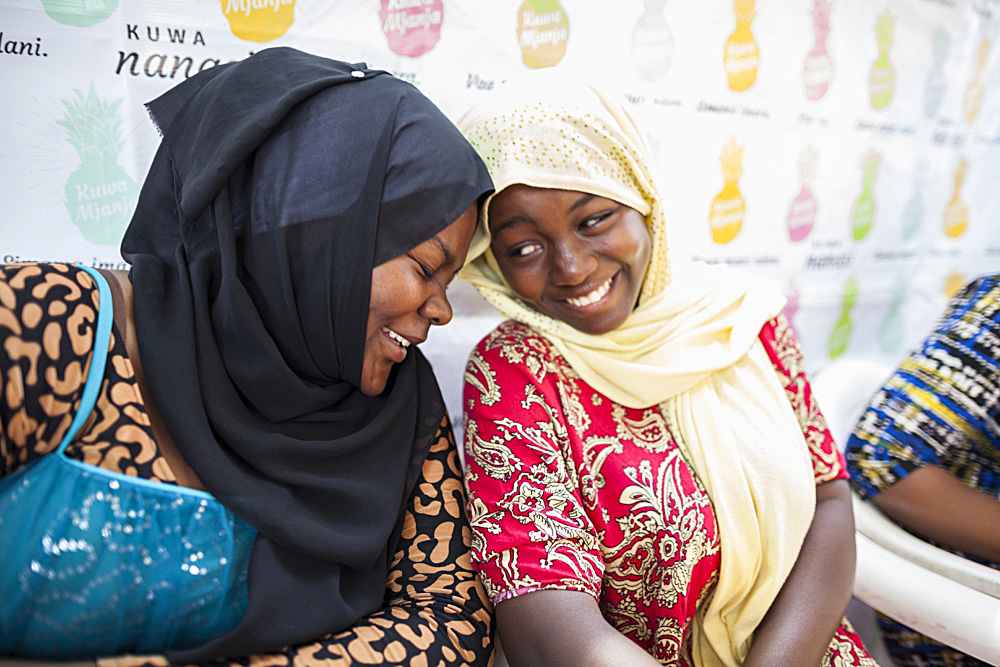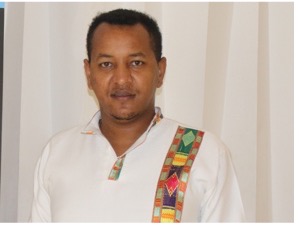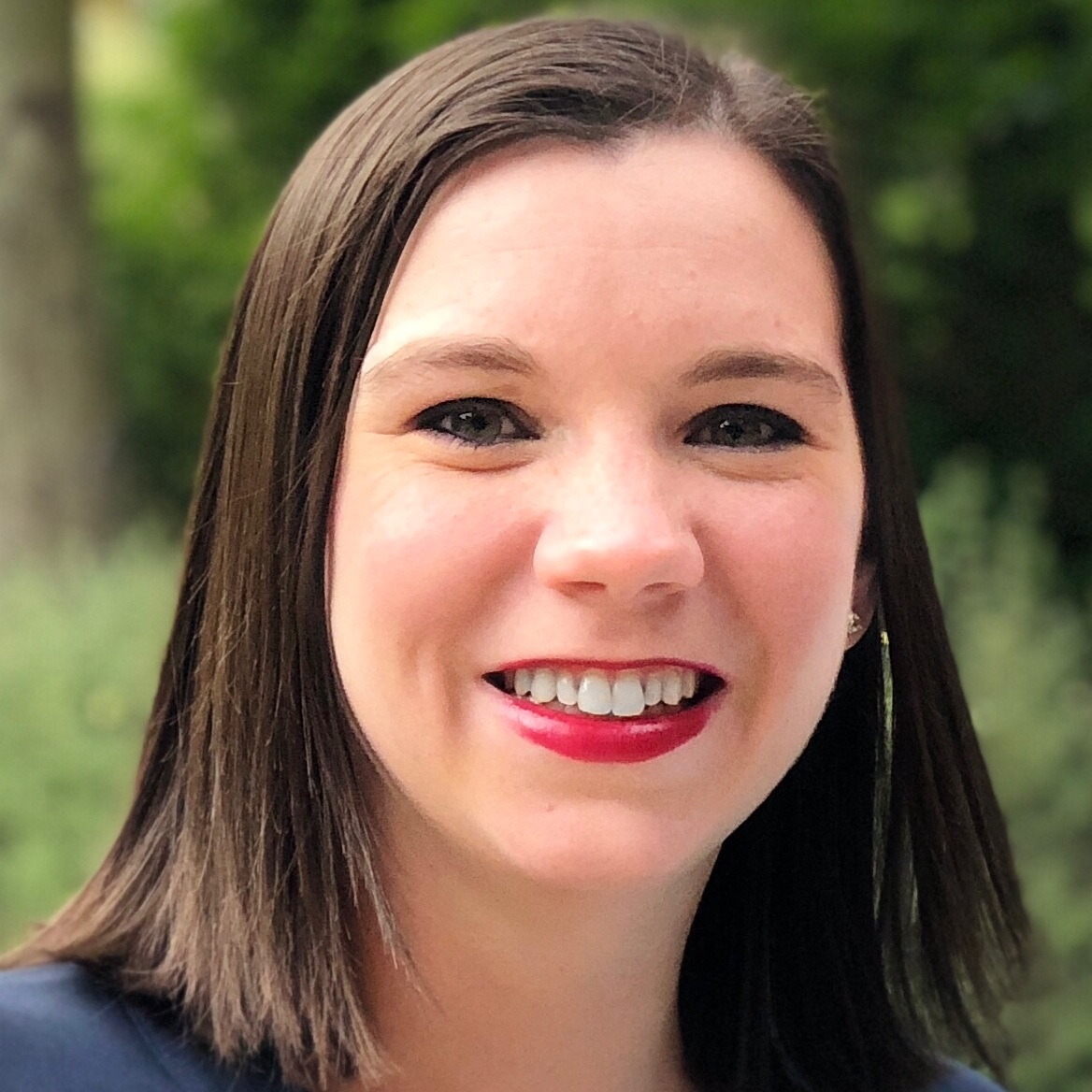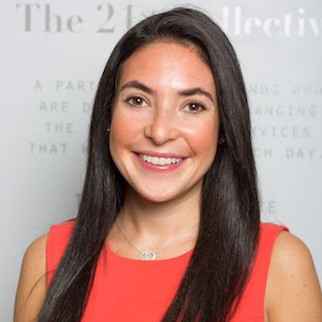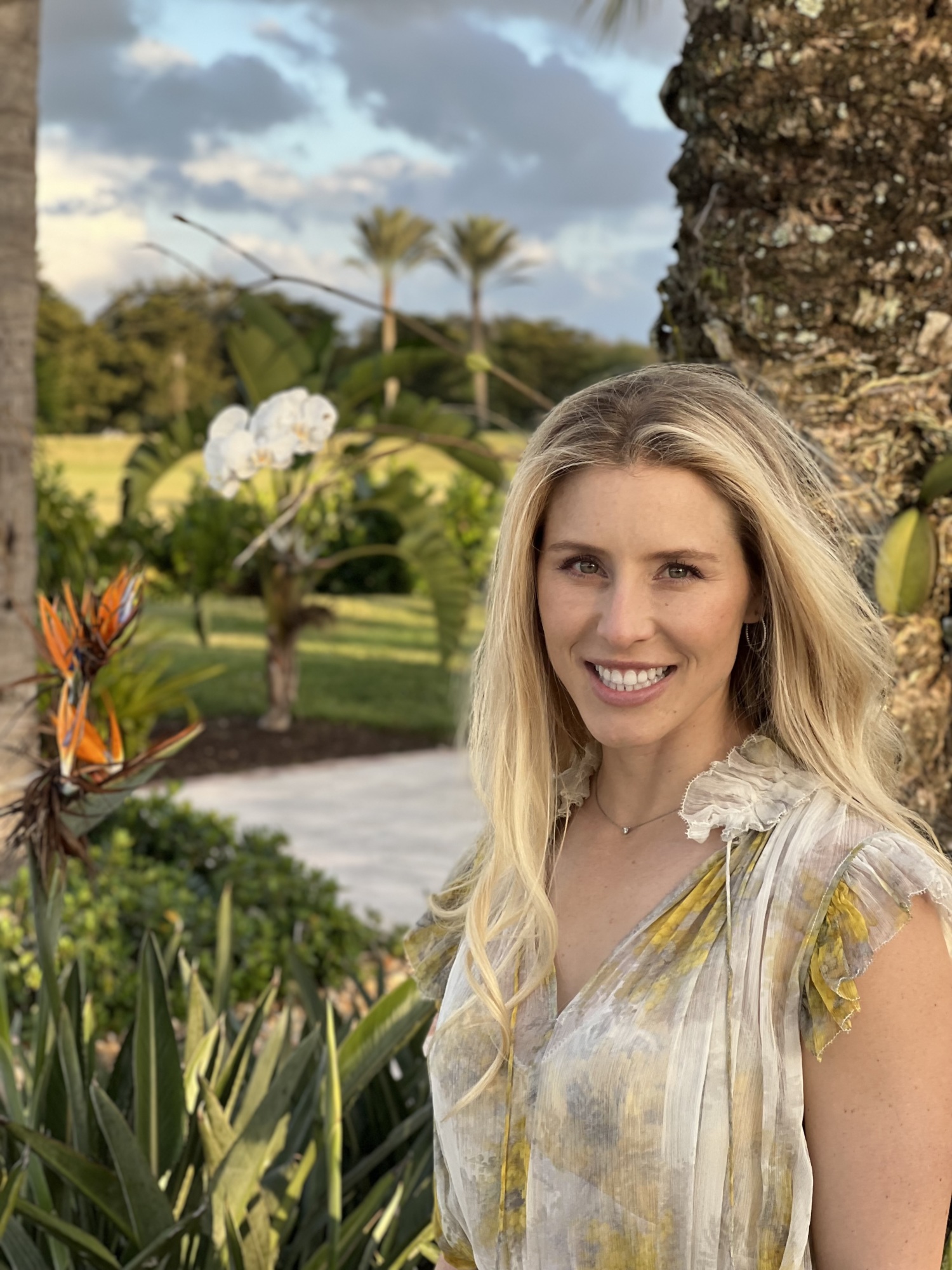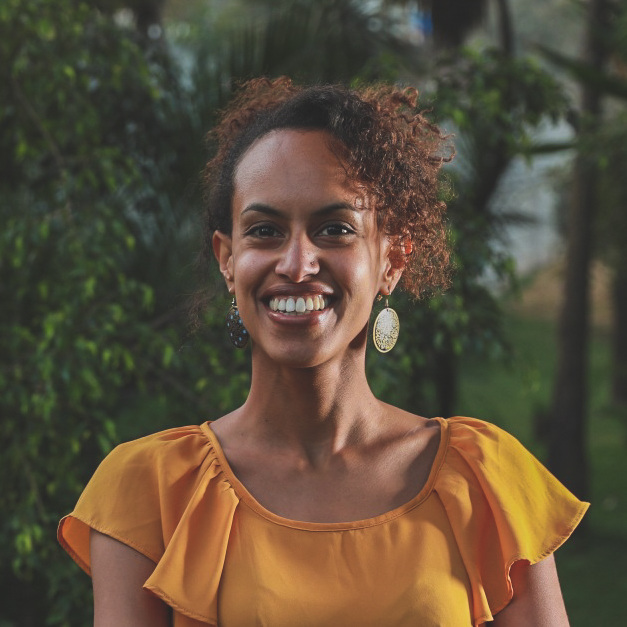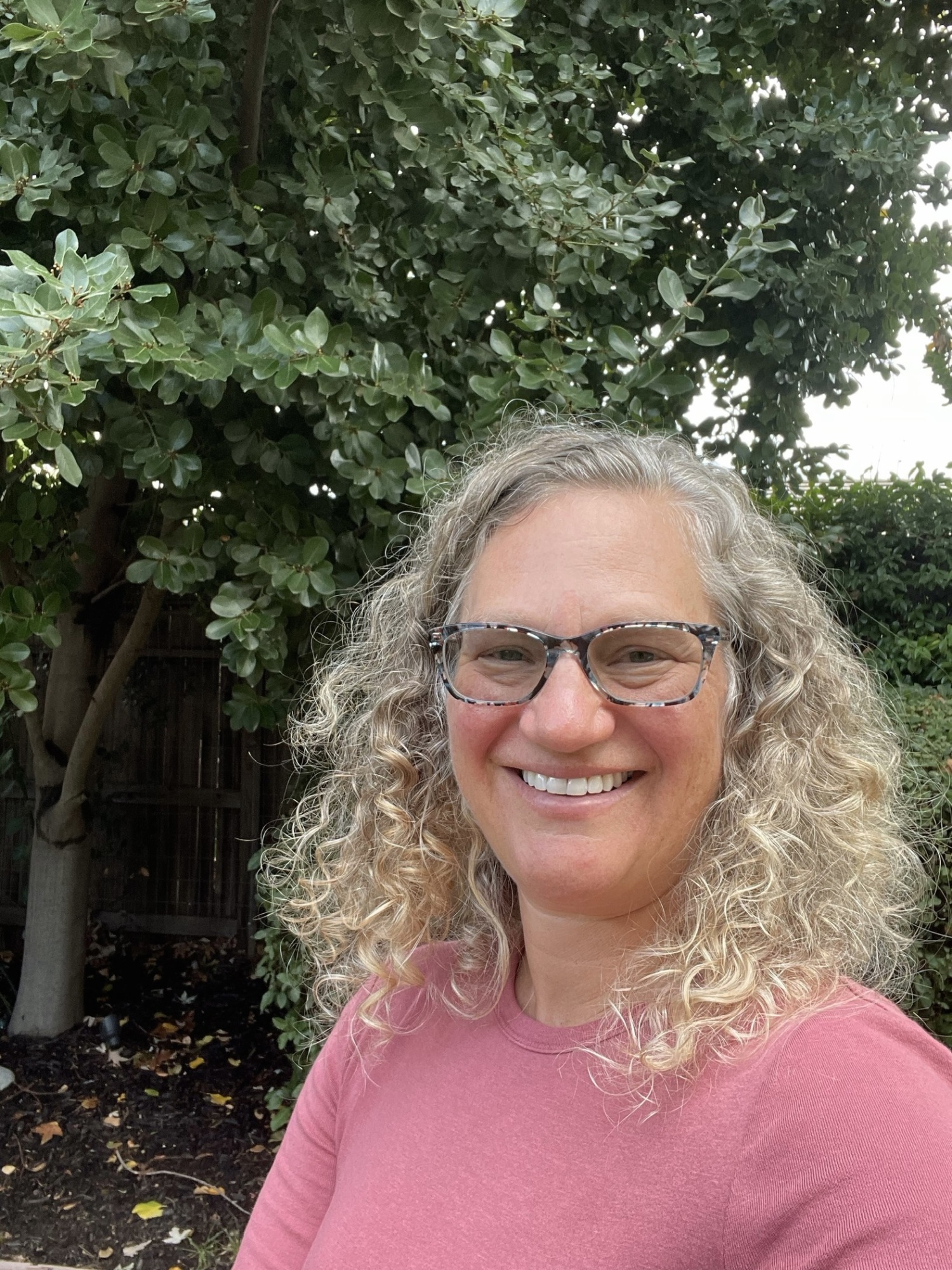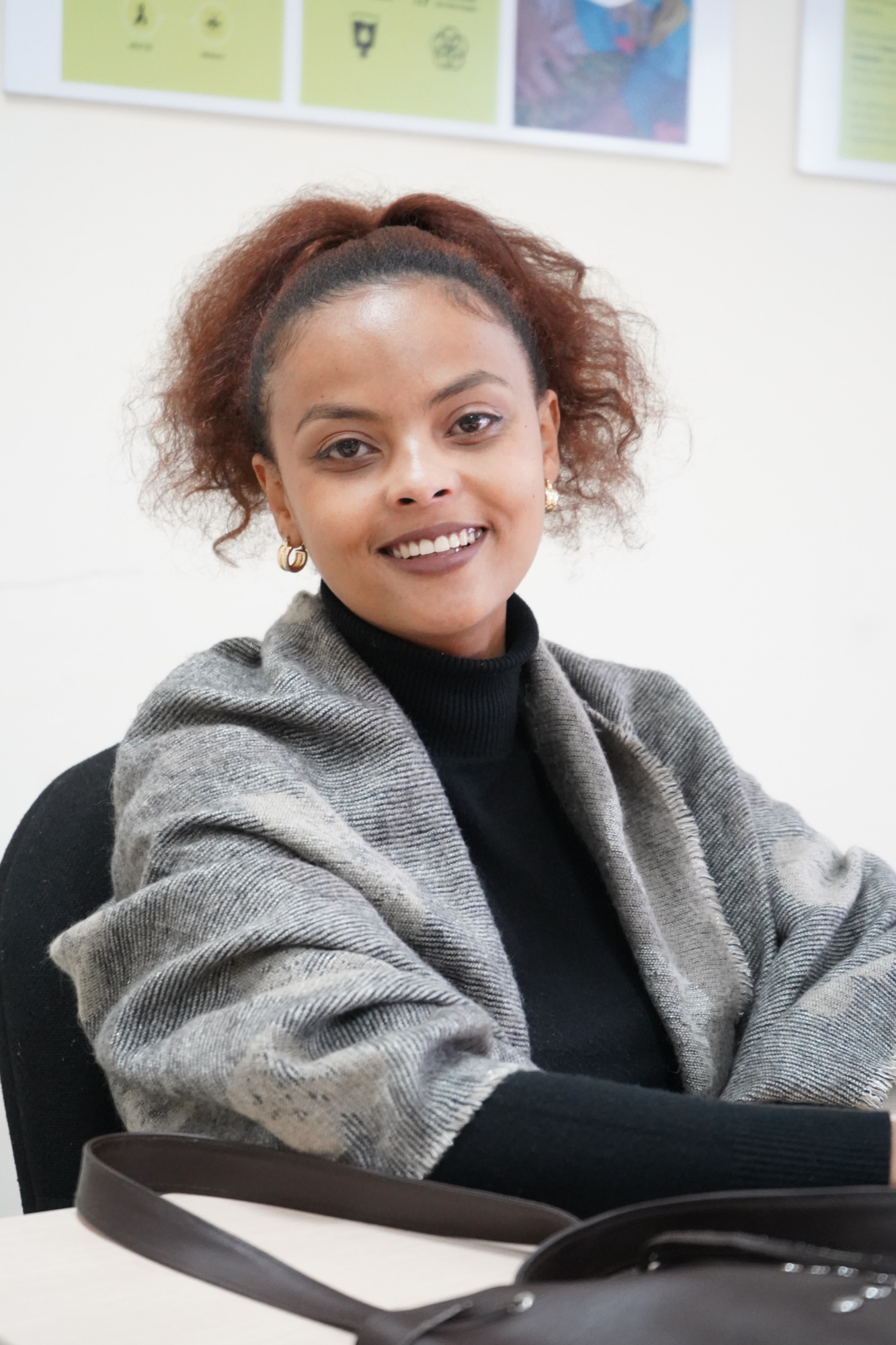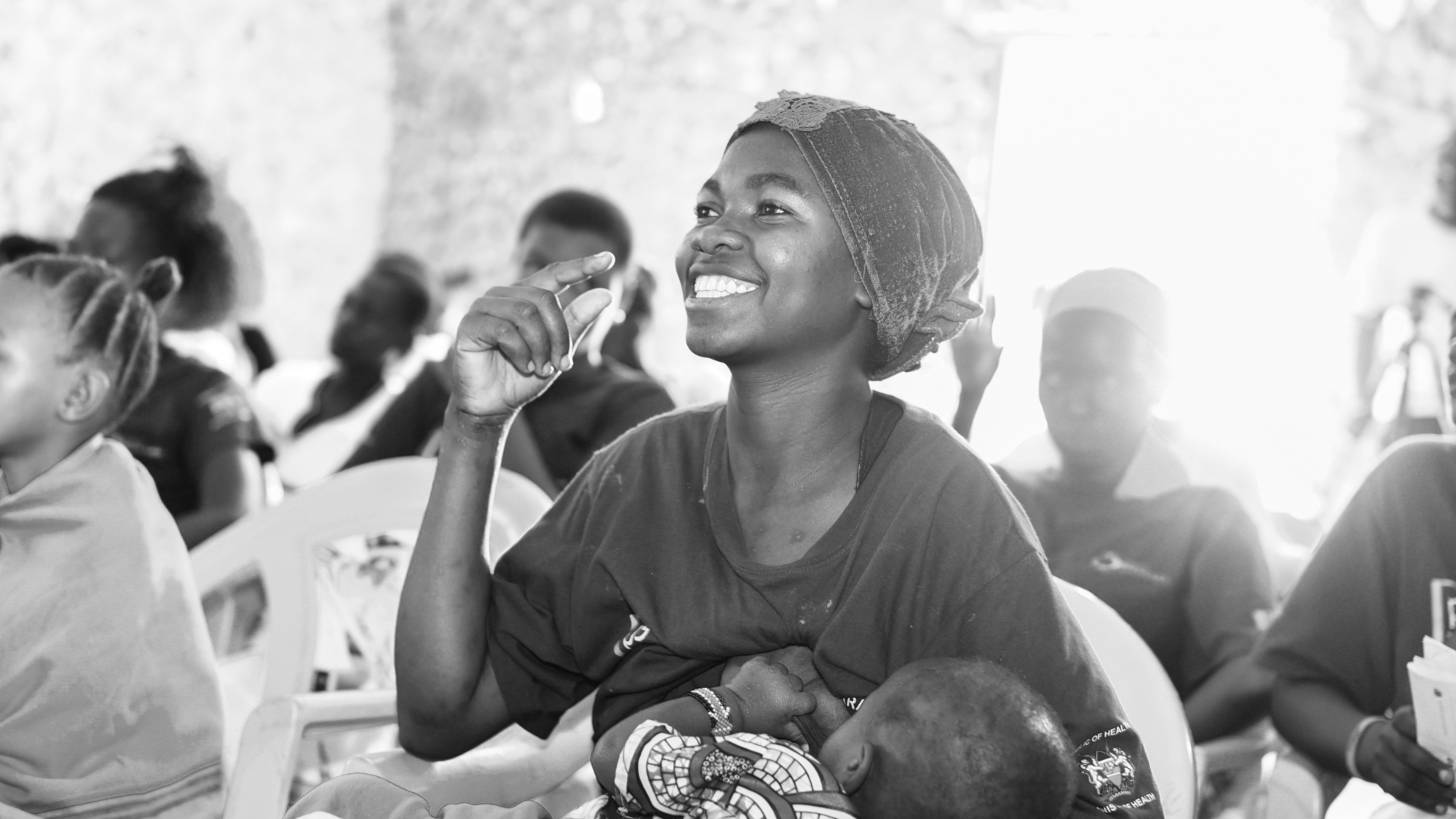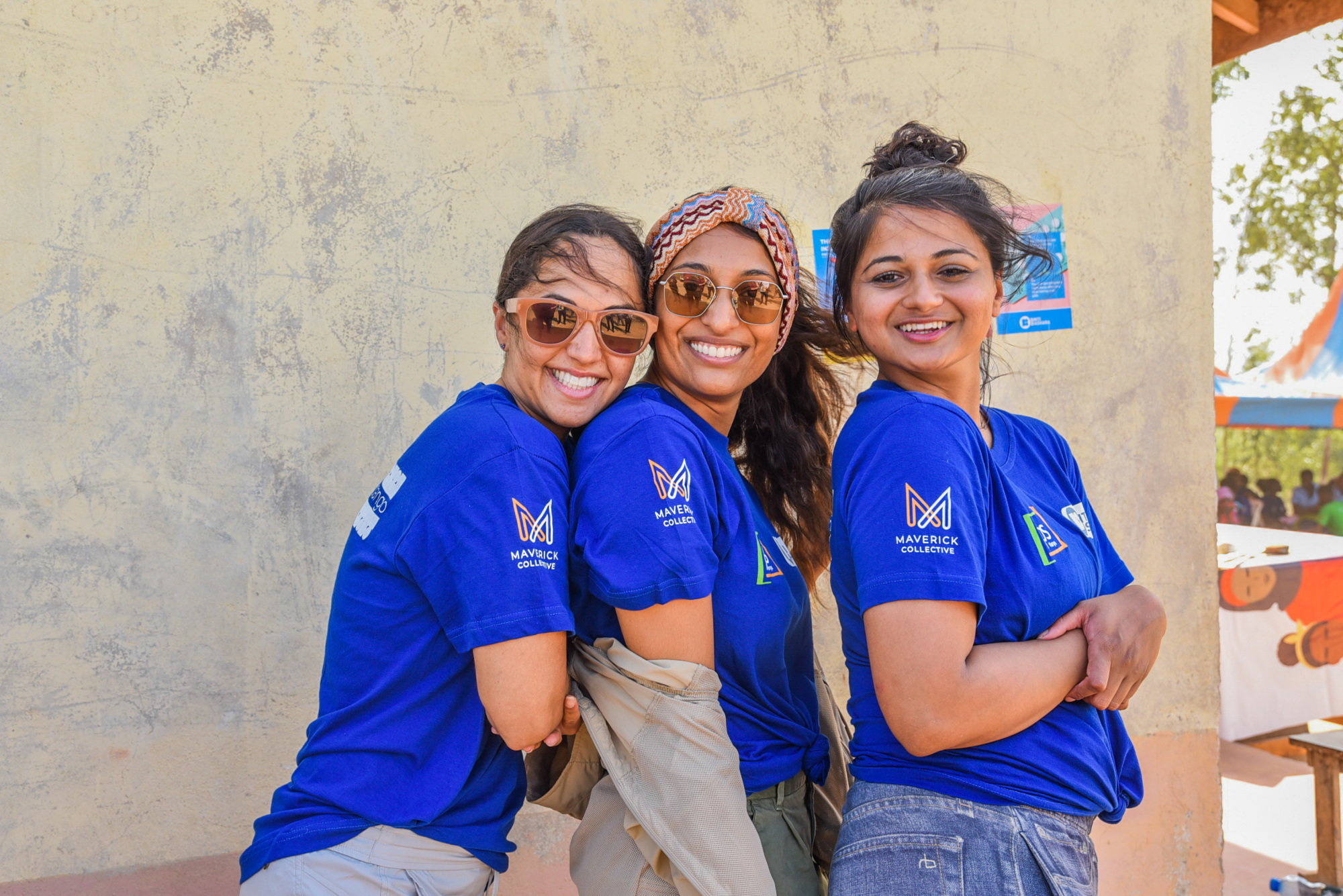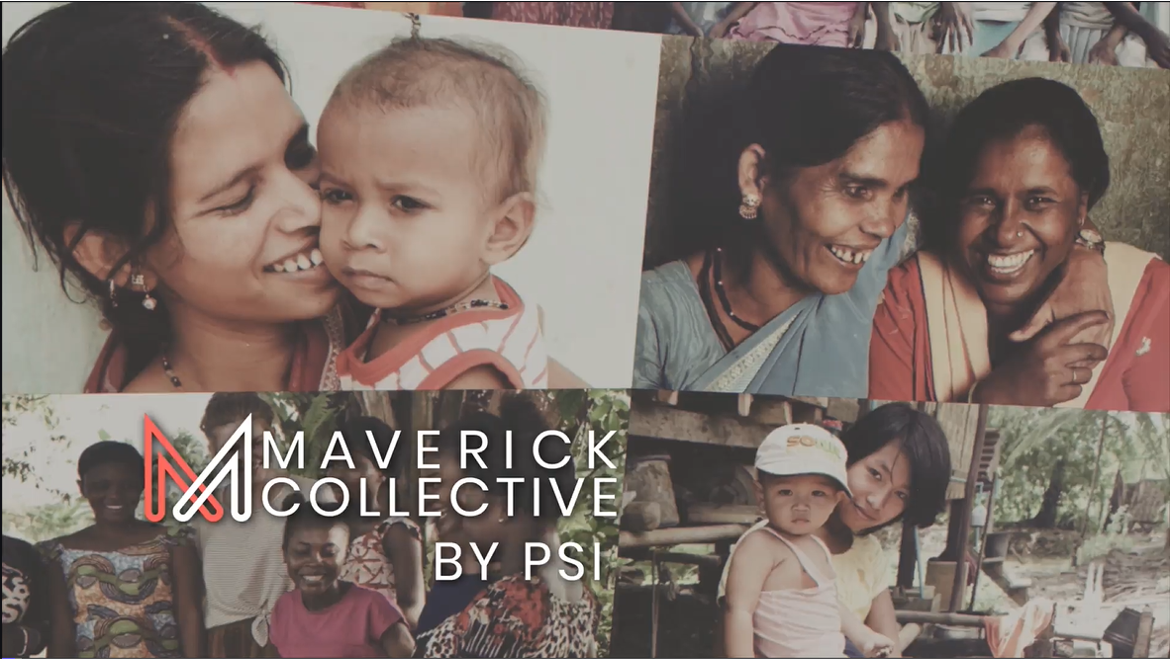
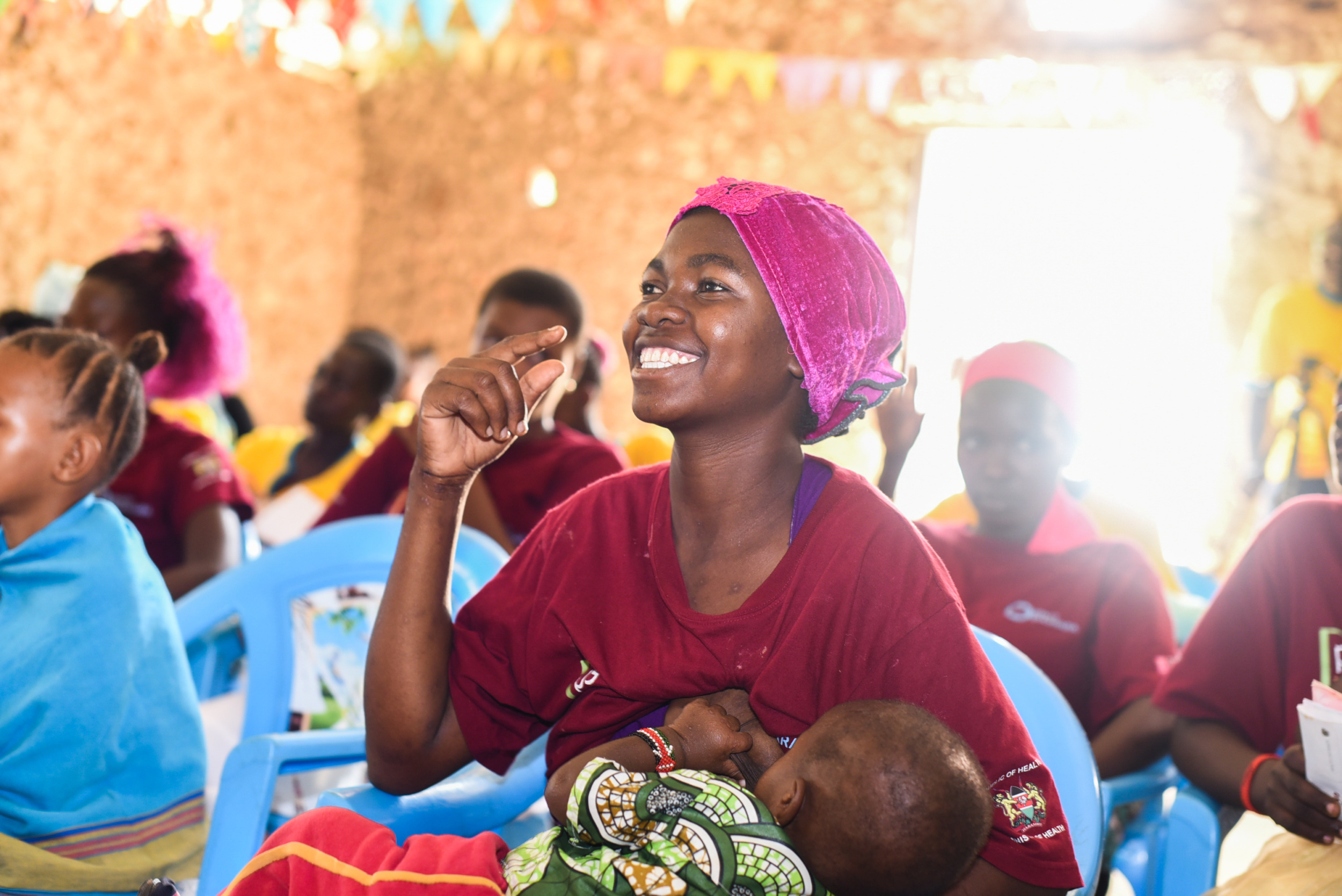
IT STARTS WITH A DREAM
THE POWER OF ASPIRATIONAL PROGRAMMING
From the Desk of
With Smart Start+ and Smart Steps, not only are we creating space for girls to dream, but we are also giving them the tools to turn their dreams into reality.
Dear Maverick Collective Community,
My daily routine is focused on leading a program that co-creates solutions with and for adolescent girls- I am one of the fortunate!
Today, I am proud to welcome you to this edition of ISSUE – It Starts With A Dream: The Power of Aspirational Programming, and introduce you to Smart Steps and Smart Start+, two incredible innovations that can redefine how we approach family planning for adolescent girls and their husbands, starting with their dreams and aspirations and helping them not only define them but also giving them the tools to achieve them.
I hold this ISSUE very close. I work on Smart Start, PSI Ethiopia’s co-created solution part of the Adolescent 360 project, and the platform for the Maverick investment you are exploring today.
Smart Start is designed based on what the girls want and need. It is all about helping married 15–19-year-old adolescent girls and their husbands dream beyond their traditional roles and expectations, make a plan, set a goal, and consider contraception as a key asset for them to succeed in life, helping them to say: “Yes, contraception is for me, I need enough resources before having a child, and I need a smaller family to give a better life to my future children.”
At the start, I was convinced that Smart Start was the best tool that supports girls and their husbands in a meaningful way. Then, I met Aster and Kifle.
Aster and Kifle came to tell us how the Smart Start program was benefiting them, and they proudly brought us their joint savings book to show us just how much they had been able to save by taking up contraception after their first child.
A list of questions came to my mind after meeting them:
- What does Smart Start offer to help couples grow economically?
- How can Smart Start further adapt so that the husbands will be supportive of their wives in every decision the girls make?
- Is helping girls economically something we can do within the health sector? If not, what alternatives do we have?
- Where can we find the funding to adapt and co-create more?
The visit and the conversation we had with the couple was a turning point, and with the help of the Maverick Next funding and their partnership, the team co-created Smart Steps and Smart Start+ as answers to these questions.
With Smart Start+ and Smart Steps, not only are we creating space for girls to dream, but we are also giving them the tools to turn their dreams into reality. I have no doubt that, through Smart Steps and Smart Start +, we will help thousands and millions of girls to lead a decent life.
This is just the Start. Join us.
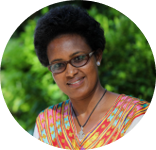
EPISODE 6 | IT STARTS WITH A DREAM
Tune in to Episode 6 of Maverick Beat where we spotlight our first Maverick Next Project which injected a burst of innovation into A360's Smart Start approach in Ethiopia by designing the project based on young couples' dreams and aspirations and giving them tools to achieve them. You can explore more in the project pages including our Fellows' “journals,” stories from Sara, photos, and more.


Engaging Husbands in Family Planning

Maverick Beat | Ep. 6: It Starts With A Dream 26 mins
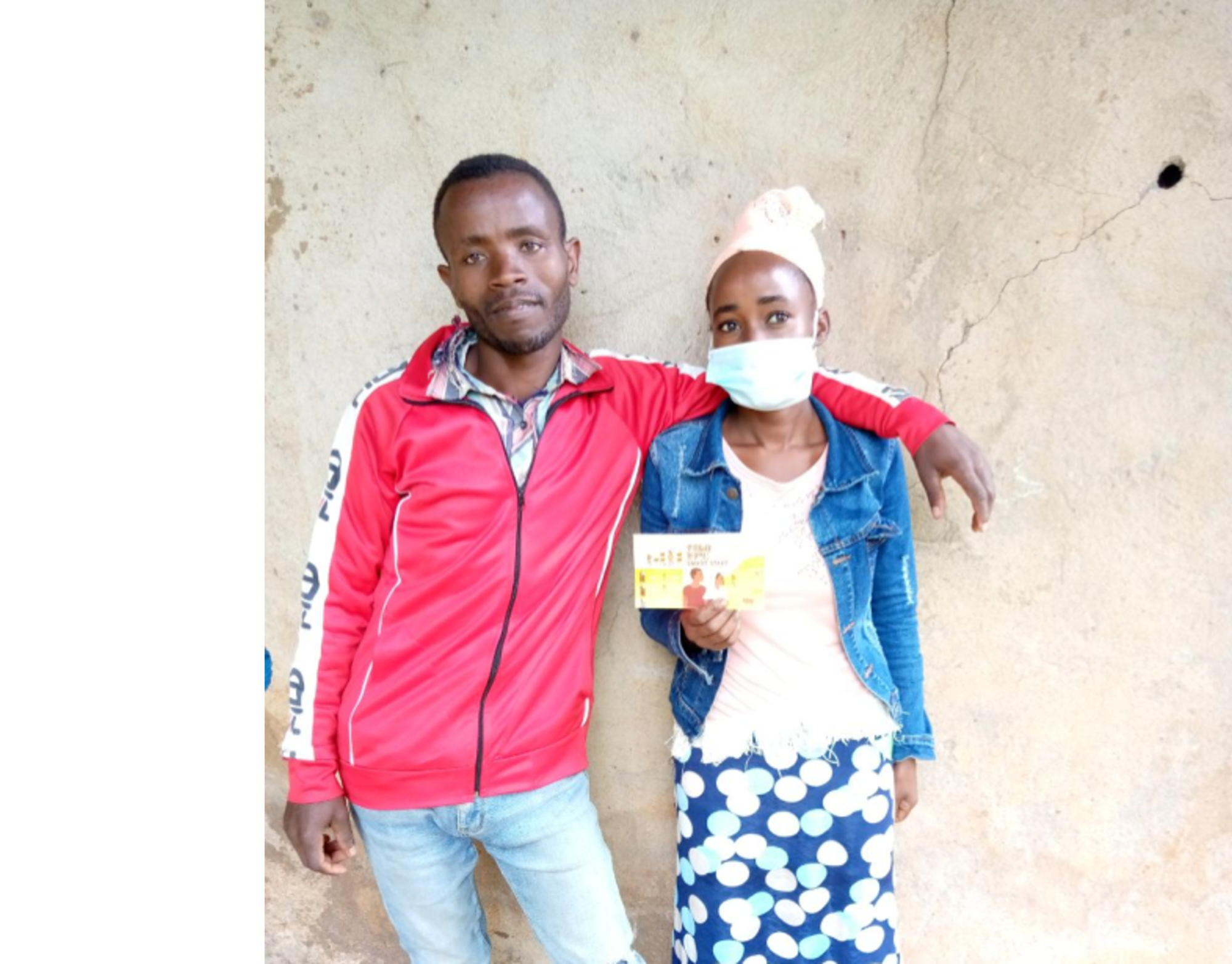
[...]"since my husband is with me and at my side, I didn’t face difficulty to make a decision on the type of method. If he wouldn’t have been with me, the burden of explaining the issue would have remained on me.”[...]Mekdes Findaka is invited by her friend, who has attended a session and took a method before.
Mekdes is 17 and a mother of one child. After receiving the invitation from her friend, the girl discussed the issue with her husband, and they decided to come to the session.
The girl who made the invitation didn’t let them go alone instead she accompanied them to the session. They got the counseling and decided to take an implant.
The girl explained “when my friend come and told me, I didn’t think twice to decide to accept the invitation. When my husband came, I told and convinced him to attend the session.” She added “since my husband is with me and at my side, I didn’t face difficulty to make a decision on the type of method. If he wouldn’t have been with me, the burden of explaining the issue would have been remained on me.”
The girl who passed the invitation said that “I have learned quite a lot from the session and took a method. I believed the message to be communicated for girls like me. That is why I invited her.”
- 1906 husbands engaged in education sessions
- 83% of girls adopted contraception when their husbands were engaged in the pilot

To have a conversation around family planning and not engage 50% of the couple or engage the male does not make sense. We should be investing in this.Alexandra Idol
Founding Maverick Next Member & Maverick Collective Co-Chair
SMART START+: ENGAGING HUSBANDS
The Husband Engagement innovation targeted young married couples in two regions of Ethiopia and built off the insight that couples want to plan their future together, but don’t know how.
The husband engagement model will continue through the "Own the Future" project in Ethiopia, with the support of the Canadian government.
A family planning counseling model designed to bring husbands into family planning conversations with an aim of supporting married adolescent girls in adoption of modern contraception, this Husband Engagement innovation targeted young married couples in two regions of Ethiopia and built off the insight that couples want to plan their future together, but don’t know how.
Often, husbands can’t attend Smart Start+ counseling, but when they do, contraceptive uptake is higher. Engaging men in family planning programs is crucial.
The Smart Start+ tool adopts and builds off Smart Start financial planning tools, leveraging insights from husbands to make it more effective. Changes to the tool include, adding an emphasis on the types of contraceptive methods, how to use, return to fertility, efficacy, and side effects; integrating a referral card and invitation card to encourage husbands to attend the session; designing branded hats to spark discussion around the community; a counseling banner with visual aids; and creation of community structures to mobilize husbands to join.
Project Team

An unexpected moment
During our visit, the PSI Ethiopia Team welcomed us with a traditional coffee ceremony.
Alex
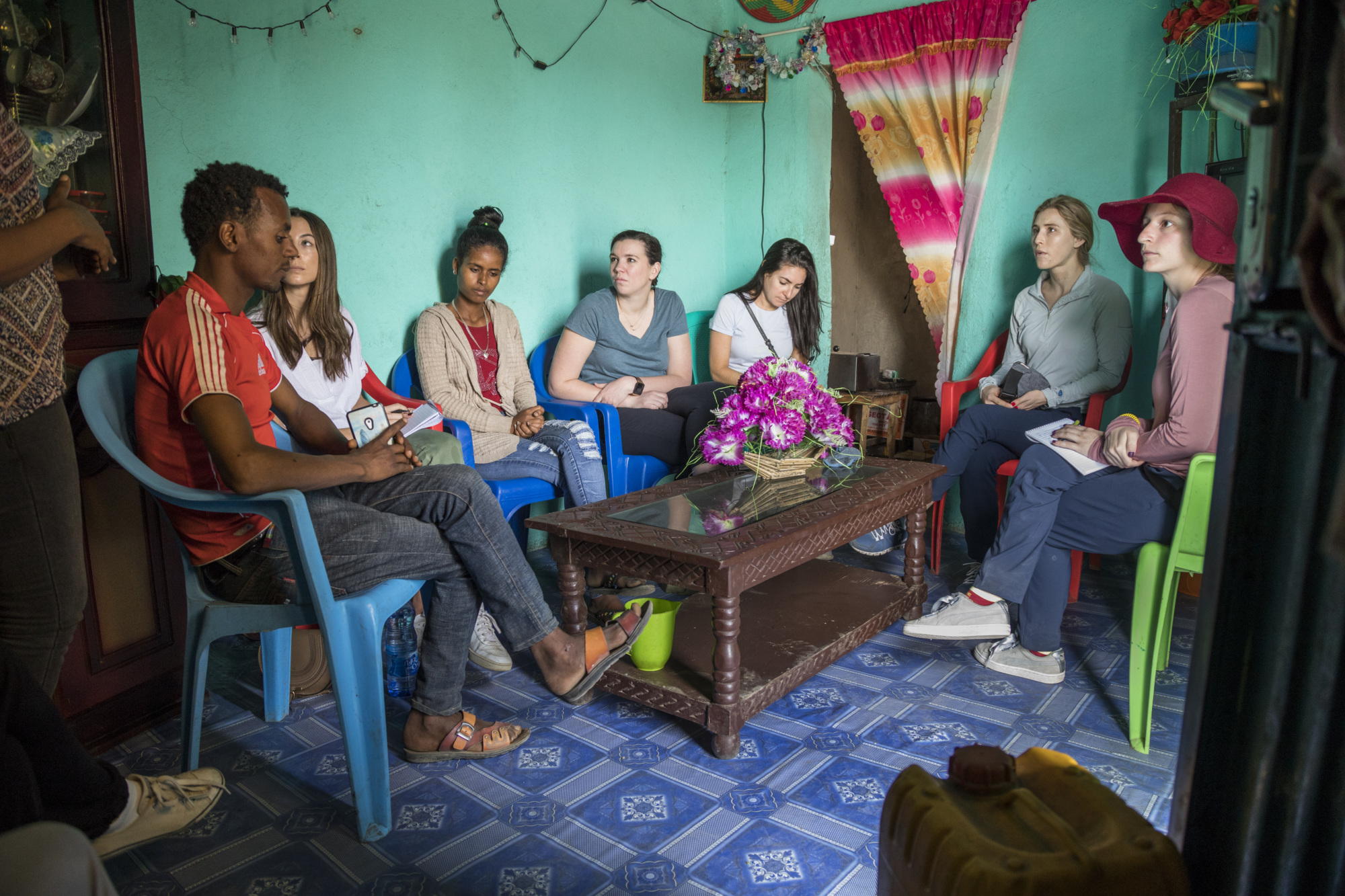
Meeting Sarah
It was such a unique opportunity, to be able to have just open honest conversation with these girls in their homes. It was something that I've never experienced before as a philanthropist, but I will never go forward in my philanthropy without doing so.
Gaby
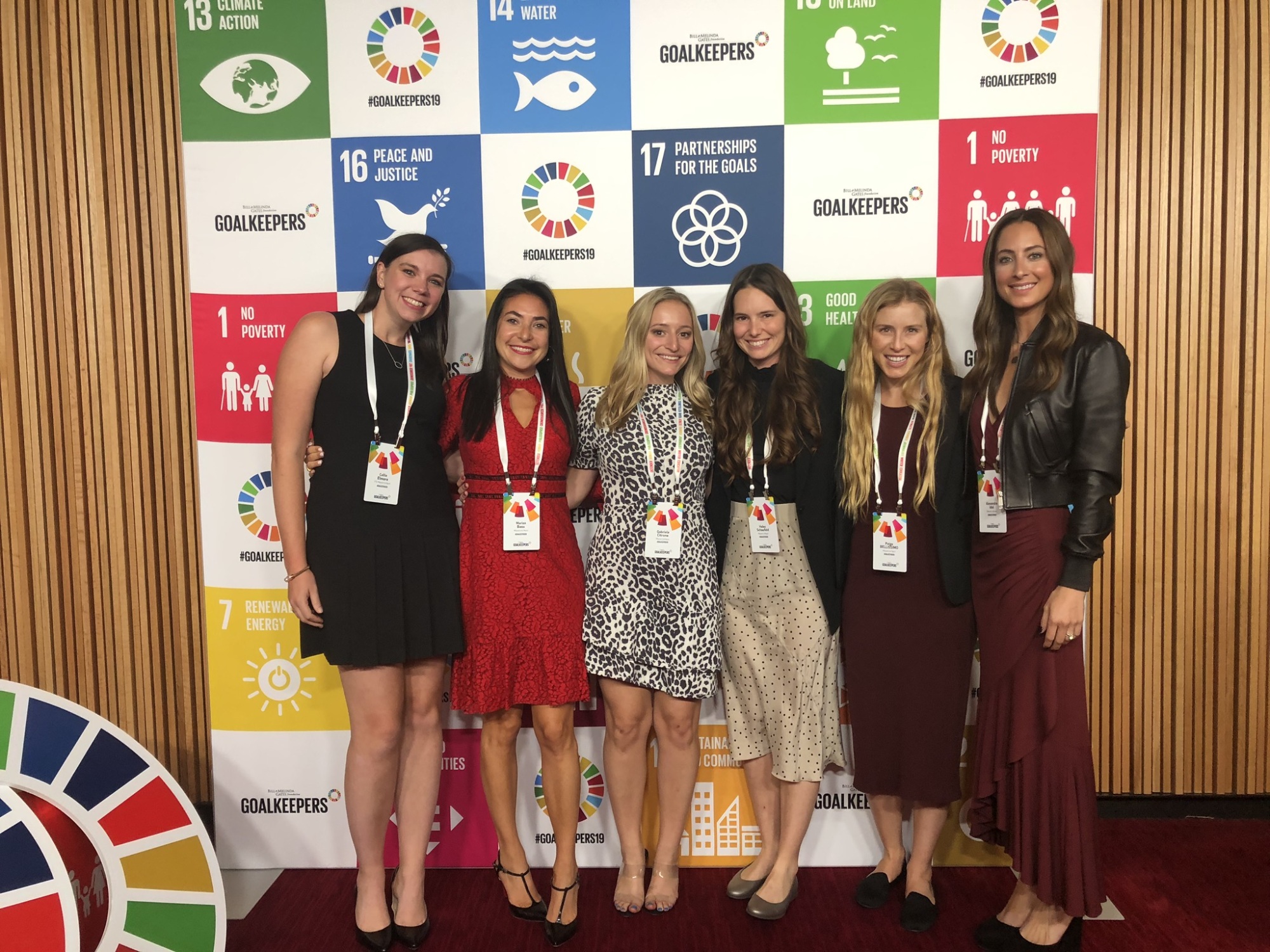
Growing in community
For me, it was more than just this project and our work. It was the model of MaverickNext. it took me going all the way to Ethiopia with this group of girls to really realize that we weren't being truthful and honest with each other as donors.
Gaby
1/3
Economically Empowering Girls and Couples to Achieve their Dreams
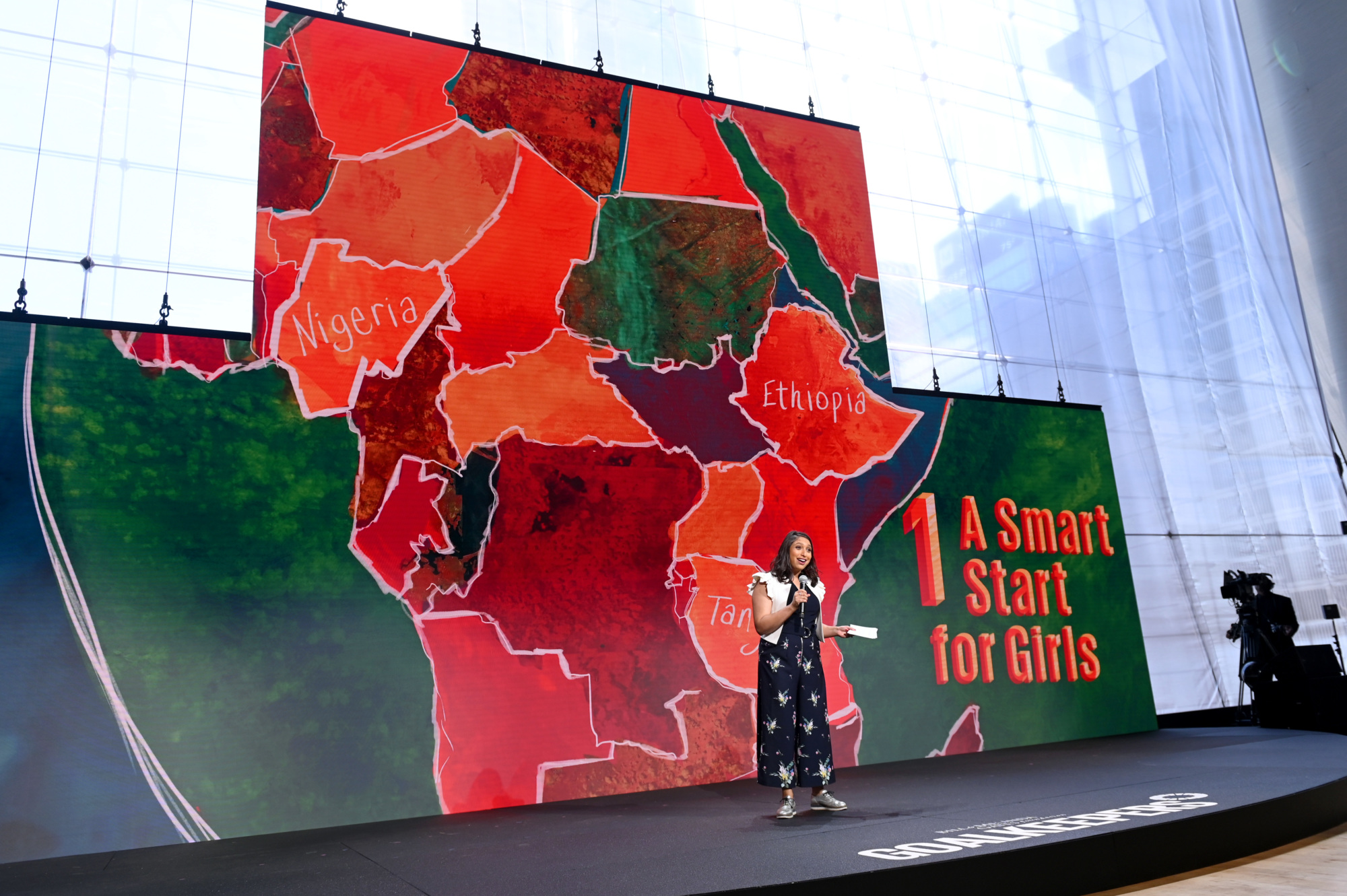
A360 Smart Start Wins 2019 Goalkeepers Award 3 mins
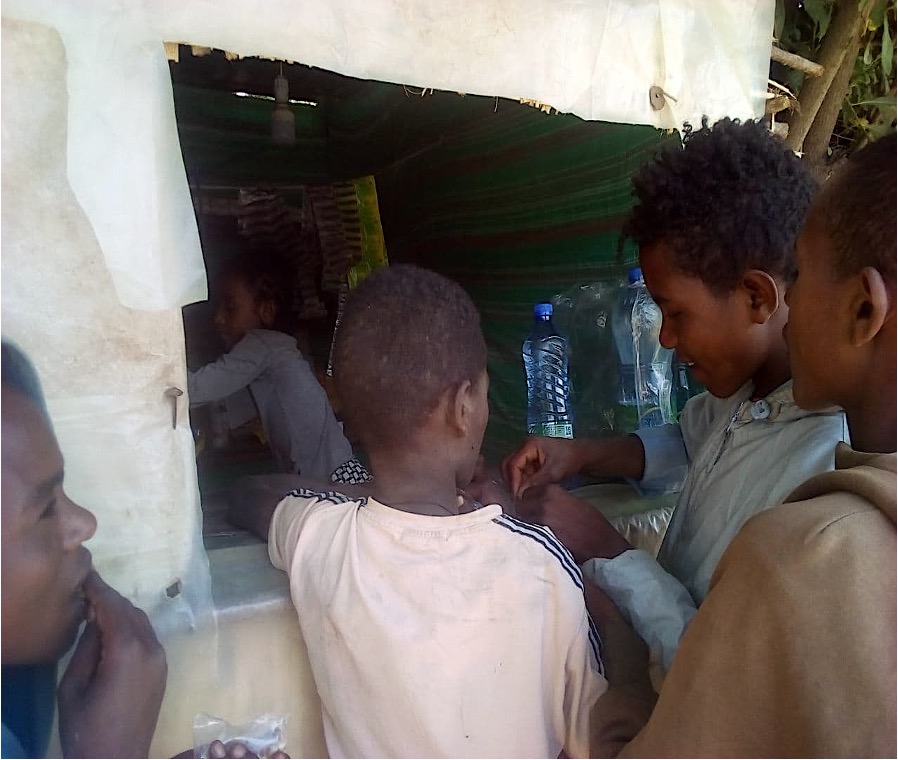
Derartu is a 16-year-old girl and a member of the Nimona saving and loans association. Derartu used to buy and resell sugarcane when she joined the savings and loan association. Through Smart Steps she was able to diversify and scale her business, become an employer, and now own her own shop!Derartu Hola is a 16-year-old girl and member of the Nimona saving and loans association. Derartu was already engaged in an income generating activity, buying and reselling sugarcane when she joined the saving and loan association. She first started selling sugarcane with 180 ETB capital. She used to buy sugarcane wholesale, cut it into small pieces and sell it to make a 160 ETB profit.
Derartu begun her Smart Steps journey having bought four chickens, hopeful to begin selling them for a profit. She and her husband Dego had also planted cash crops by entering share agreements with landowners in the area. Derartu has made a few changes since joining the saving association. She has now stopped selling sugarcane and started a new income generating activity.
Having saved long enough to qualify for a loan, Derartu requested and received ETB 400 from the group. She then used the money to hire daily laborers to collect the cash crops she and her husband planted. She proceeded to sell the crops and used her profit to start a new IGA, selling soft drinks. Accessing the loan has allowed Derartu to start a more convenient and profitable business from the comfort of her home. Now she doesn’t have to travel to buy sugarcane to sell.
- 50+ girls participated in the Smart Steps Prototype activities
- ~30% of Smart Steps Prototype participants reported generating income
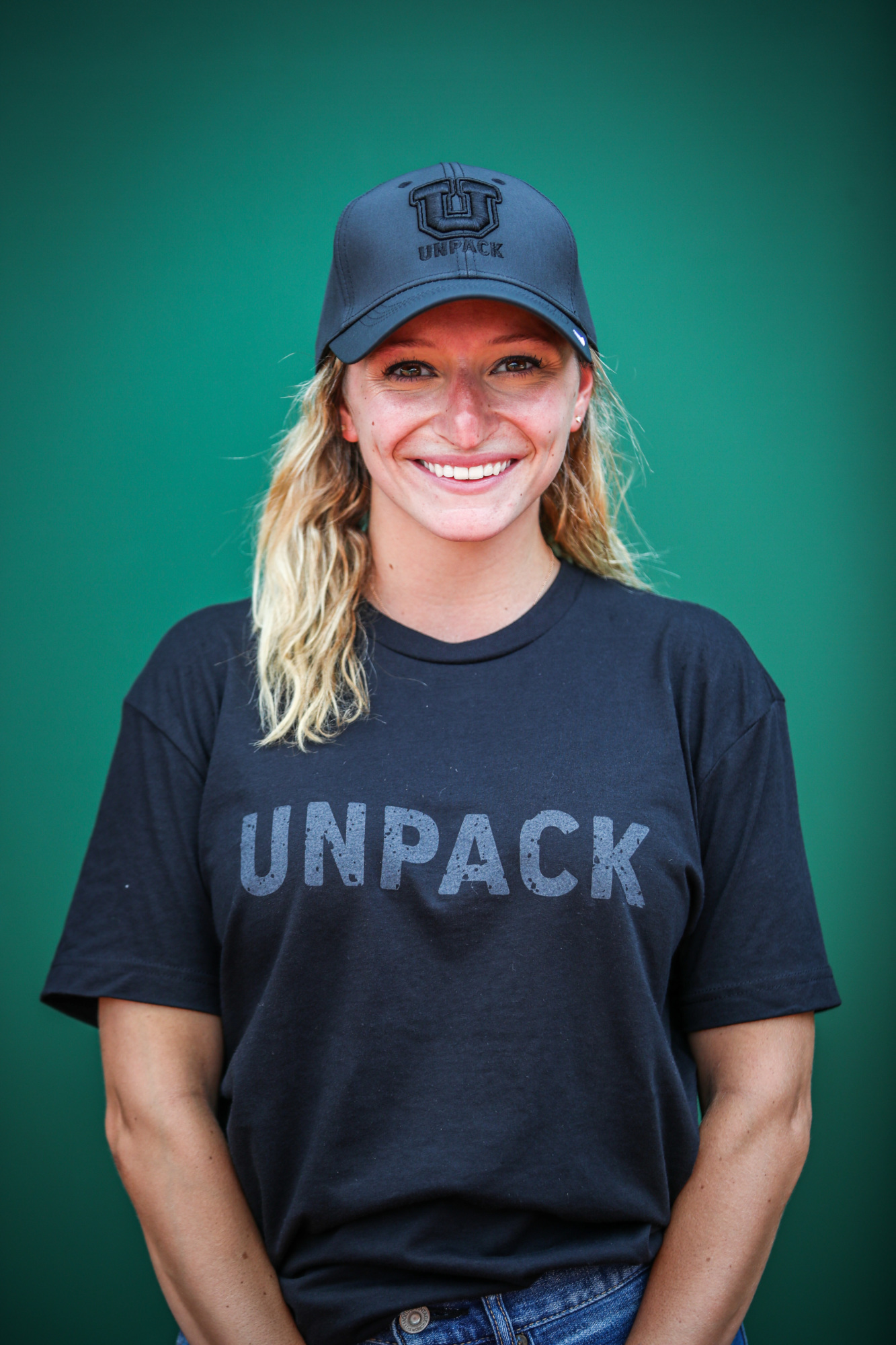
It seems so obvious to put the humans that you're working to help and serve at the center of your work. And it's so nice and wonderful to hear the impact that it's had. I'm really looking forward to keeping up and hearing what's next!Gabriela Citrone, Founding Maverick Next Member
The “Smart Steps,” intervention to provide the skills, knowledge, and support girls need to reach their financial goals. Smart Steps prompts married girls and their partners to map out their goals and actionable steps to achieve these goals, with the objective of helping couples realize the benefits of ensuring both partners are engaged in income generation activities.
This prototype will go to pilot phase with the support of the Bill and Melinda Gates Foundation.
The original Smart Start intervention included a short orientation on financial planning through a counseling tool to inspire girls to uptake contraceptives as a way to achieve their life and financial goals. However, this tool focused more on learning about contraception than building strong skills in financial planning. Working with stakeholders and through project evaluation, we received feedback that girls want more substantive financial skills to achieve their goals.
Recognizing this need, through the Maverick Next project, the team designed the “Smart Steps,” intervention to provide the skills, knowledge, and support girls need to reach their financial goals. Smart Steps prompts married girls and their partners to map out their goals and actionable steps to achieve these goals, with the objective of helping couples realize the benefits of ensuring both partners are engaged in income generation activities. Next, married girls are invited to join the “Step Up Association,” a savings group to save money, access low-interest loans, and build financial literacy as well as business management skills. The Step Up Association follows a Village Savings & Loan Association model.
Project team
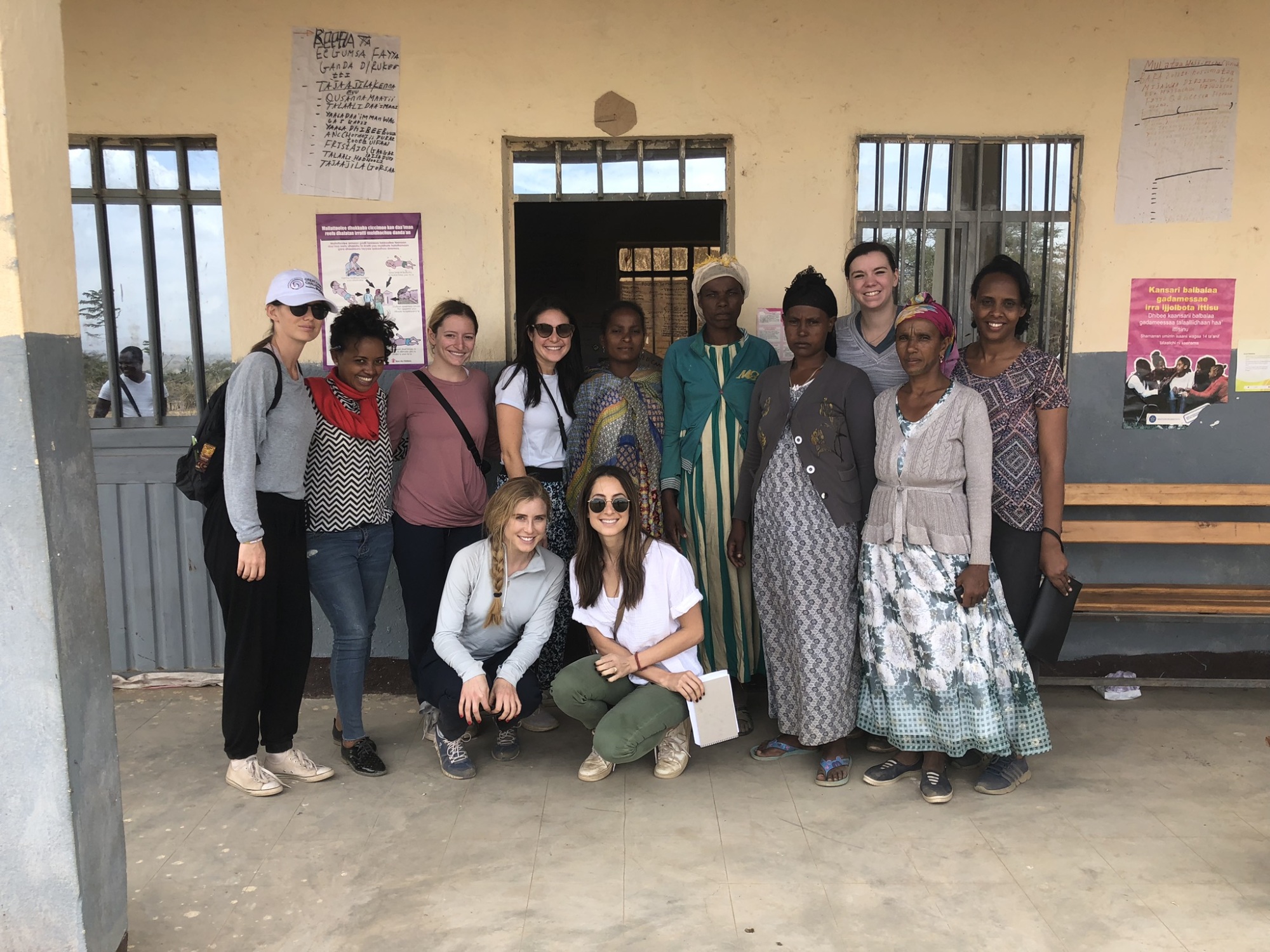
A Special Meeting
Prior to traveling to Ethiopia, we learned about the Women’s Development Army and the significant role they play in the community as trusted advocates for women and maternal health. However, getting to speak with them (with the help of a translator) and hearing about their challenges to help modernize and change the way things have always been done based commonly-held beliefs and traditions about fertility in Ethiopian culture and that particular kebele was incredibly special.
Paige
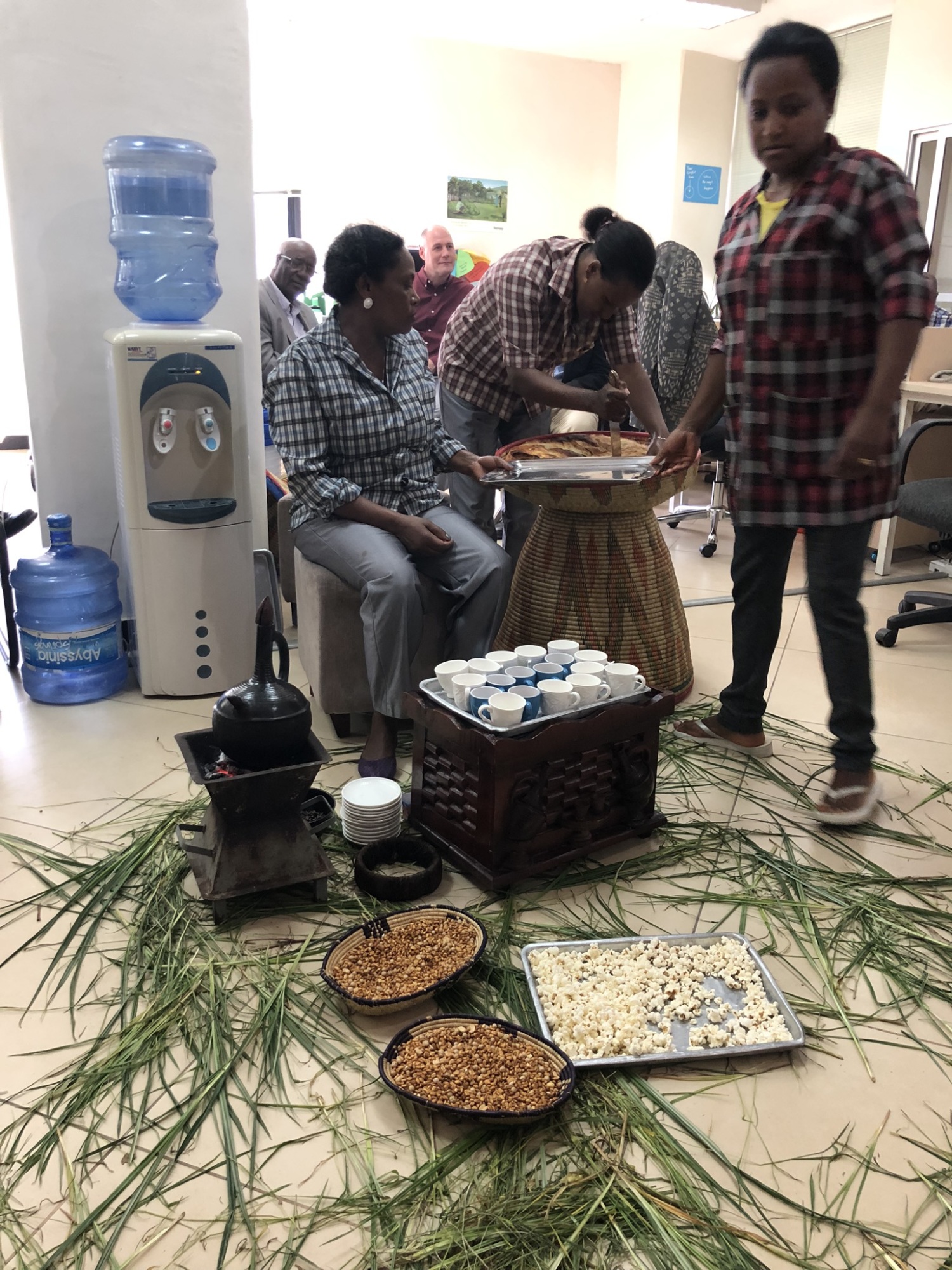
The coffee ceremony was an incredible experience to get to participate in and opened up several meaningful discussions. This ceremony demonstrated the importance of tradition in the community and strengthened the need for our efforts to adapt to meeting Sarah where she is and recognizing the importance of meeting Sarah with her husband.
Paige
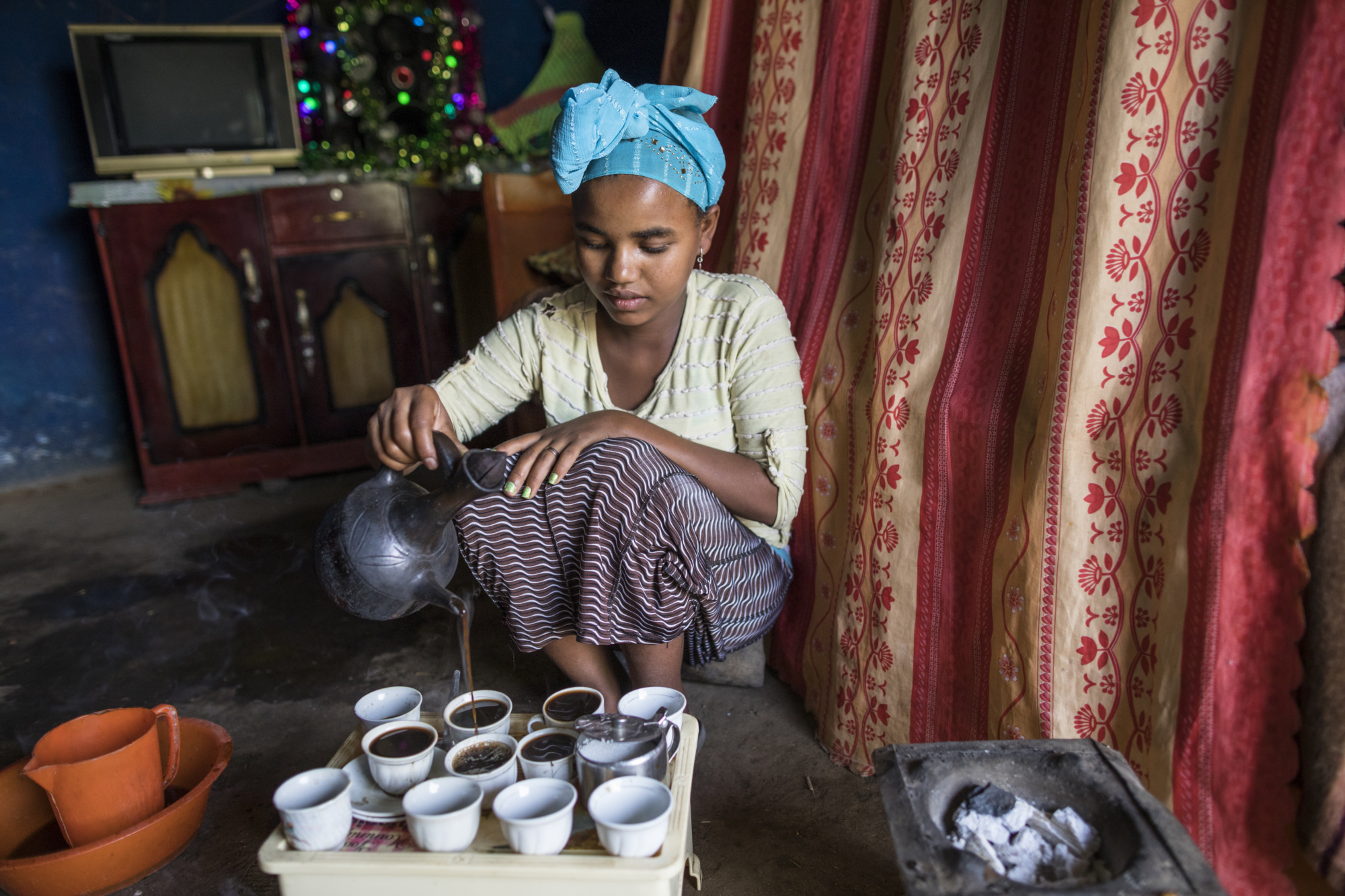
We had the opportunity to experience two—one in the Adis Ababa PSI office and one in the kebele we visited when we were with a health extension worker and a Smart Start Navigator in Sarah’s home. We shared coffee together while Sarah’s husband explained the pressure newlywed couples face from their in-laws to have children right away. Newlywed girls in their rural Ethiopian village often face pressure to prove their fertility quickly.
Paige
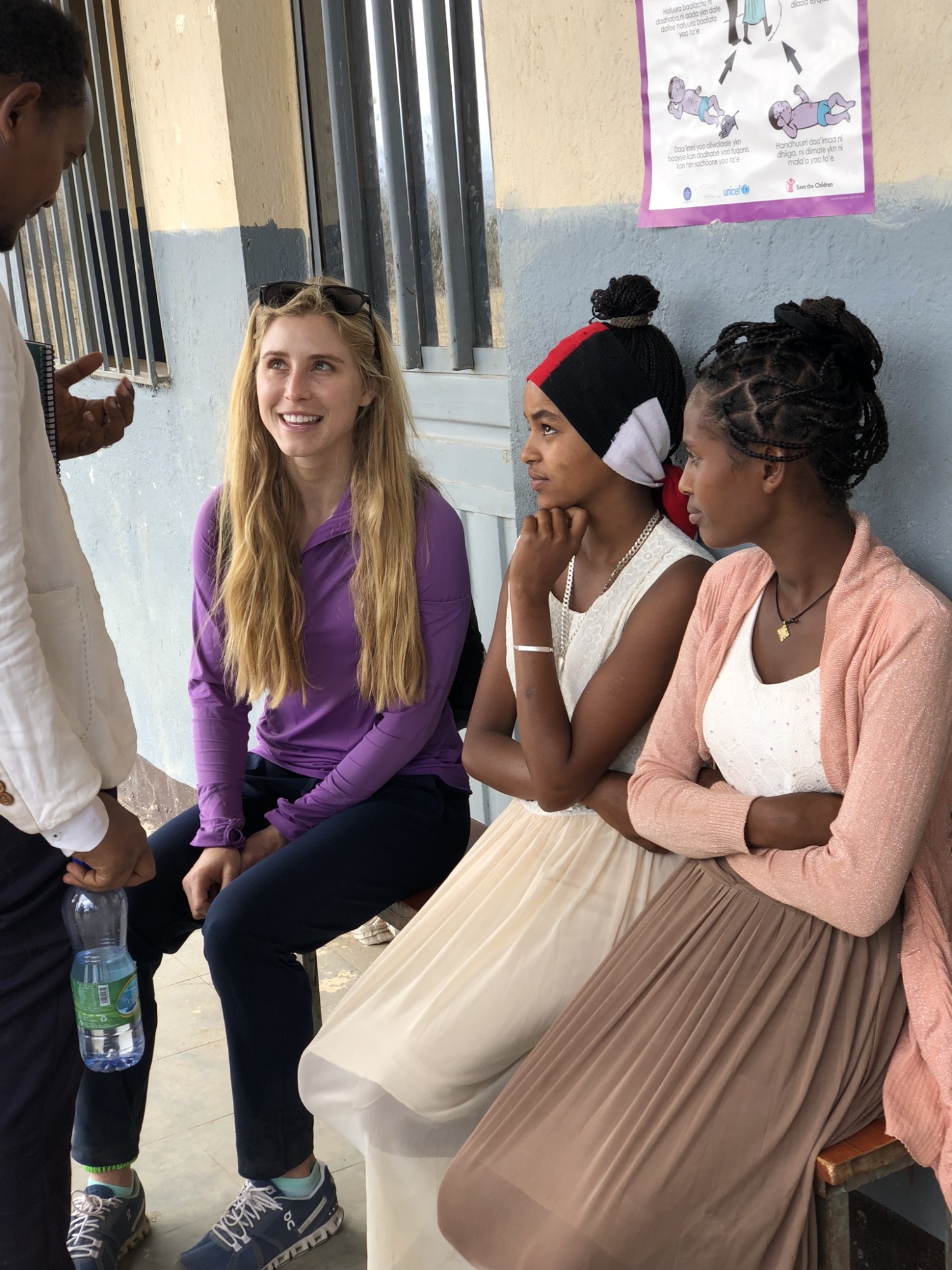
We began to go through the Smart Start session and explain the financial cost and pressure children place on a young couple, they began to discuss the matters that were important to them to create the life they wanted for their family. They began making a three-year plan to save as much as they can to prepare for the financial costs of having their first child.
Paige
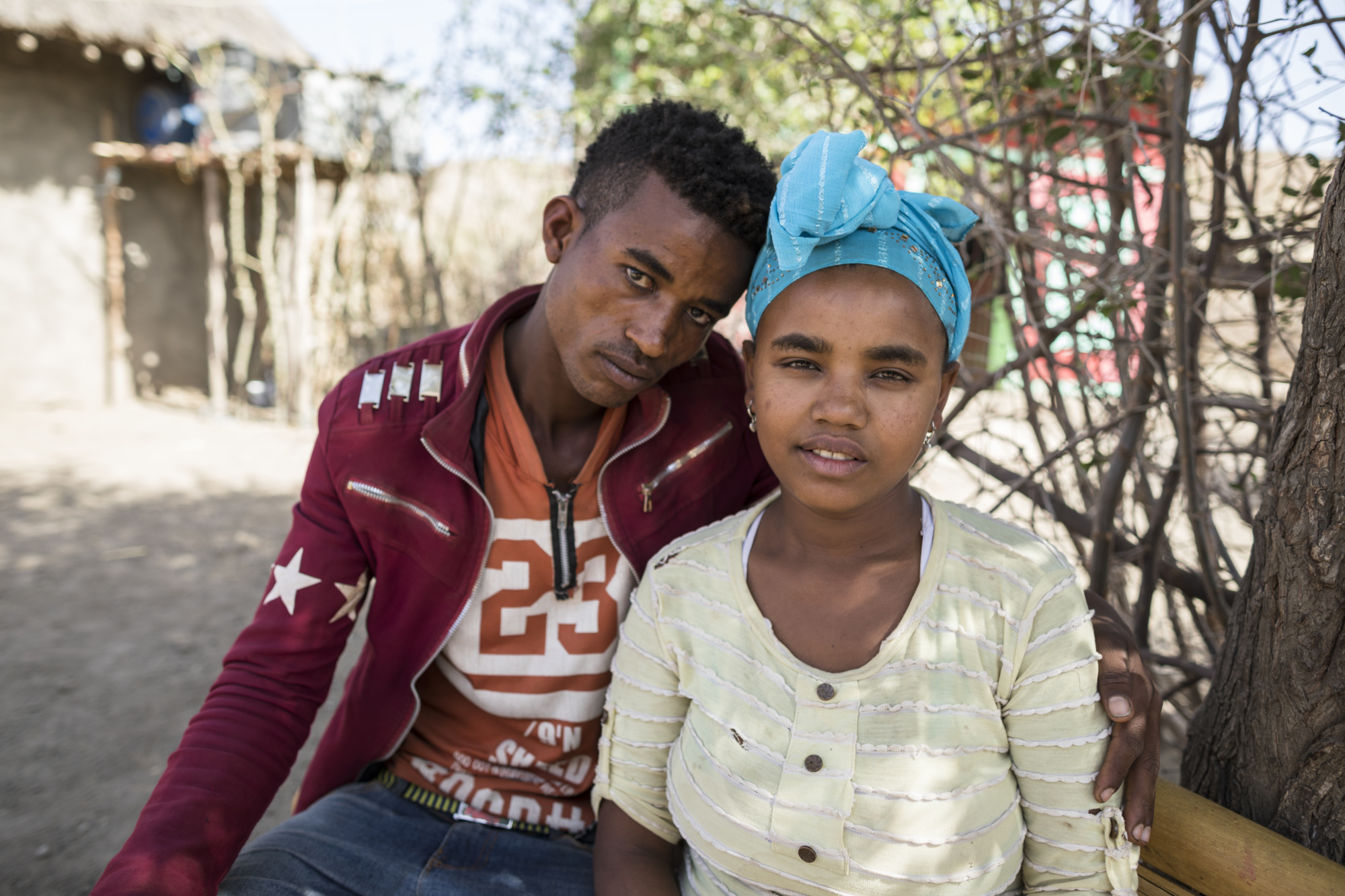
They explained that they eventually want to save enough money to move to Adama, a nearby town, open a kiosk, and build a house there. Smart Start gives Sarah the knowledge and resources to plan for having children when she and her husband are in a position to provide a healthy life for each child. They also planned to go to the clinic the next day to start the three-month injection method.
Paige
1/5
It Starts With a Dream
Join a panel of experts – old friends and new – to learn about the transformative power of aspirational programming during the development stages of youth, how we can better support the adolescents in our lives, and how to translate their energy and motivation into a better future. Bring your questions and your passion
Experience the Master Class below.
Keynote
Speakers
Moderator
Heart Homework
DIG DEEP AND LEARN MORE -- IN YOUR OWN TIME AND AT YOUR OWN PACE.
-
DISCOVER: Living for Love
If the primary joy a young woman is seeking in life is motherhood, what is the competing joy?
-
MEET: Four Dreamers Protecting the Future
We cannot dream of a better future if we cannot have a habitable planet to live on. These youth activists on the front lines of climate activism and movements are making sure we have a future to dream about.
-
EXPLORE: Developing Values, Goals and Identity
Healthy development in adolescence involves creating a positive sense of self and belonging, based on our values and aspirations. This process can be challenging if we are facing racism, sexism, and other forms of bias and discrimination, which too often causes us to be defined by others in ways that are grounded in negative or otherwise limiting stereotypes.
-
LEARN: 5 Lessons from 5 Years Investing in Girl-Centered Contraceptive Programming
A360’s interventions tap into girls’ aspirations and position contraception as a tool that can support them in pursuing their life goals. As A360 transitioned from its first program phase into its follow-on in 2020, the project examined what it had accomplished, where it had failed, and what it had learned in the process.
